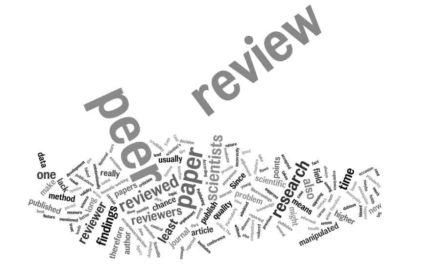How to Prepare a Manuscript for a Peer-Reviewed Journal
When choosing the journal to which you hope to submit your academic or scientific writing, it is always best to prioritise journals that are refereed or peer reviewed because this means that the research articles published by those journals have been evaluated by scholars and researchers who specialise in the relevant subject areas. This process tends to eliminate articles with flaws in content; accordingly, peer-reviewed journals are more likely to earn academic and scientific respect and influence. Refereed journals will usually identify themselves as such on their web sites, but if you are in doubt, Ulrich’s Periodical Directory (available online through most university libraries) can be used to determine if a journal is peer reviewed.
When preparing your paper for submission, special attention should be paid to any requirements associated with blind peer reviewing. If the journal uses blind peer reviews to assess papers prior to publication, its guidelines will usually contain some specific instructions as to what authors are expected to do in order to ensure that their identities will not be known to the specialists reviewing their writing. Requirements differ, but can include ensuring that the name of the author and any other personal information do not appear on the title page at the front of the paper, which usually means that a title page (or other short document) containing that personal information will need to be submitted separately; that any sources written by the author that are cited in the paper and listed among its references are referred to in such a way that a reader cannot determine that the same author is responsible for the paper currently under consideration (any passages that you need to alter to meet this requirement can be restored once the paper is accepted for publication); and that any author identification is removed from the properties of the files you submit. If you do not observe such requirements, your paper will be returned, at least for revisions before it can be reviewed, so care with such details the first time around will facilitate a more efficient review process.
It can helpful for both you and the journal editor if you suggest in your covering letter (or at the front or back of your paper itself if there is no covering letter) a few researchers who could serve as appropriate reviewers of your work. Such suggestions will be taken with a grain of salt, of course, because an author can significantly influence the results of reviews by guiding an editor to use scholars who are certain to support his or her work. It would therefore be extraordinary for an editor to follow up on all your suggestions, but often one or more of the people you recommend will be contacted to review your paper. In addition, simply by offering important names in your field and implying that you believe respected academics or scientists will assess your work positively, you strike a professional, confident and cooperative tone.

















